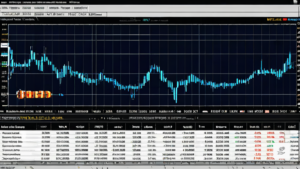Unveiling the Intricacies of Exclusive Trading

Deciphering the Essence of Bespoke Trading
In the dynamic realm of finance, exclusive trading, also known as bespoke trading, emerges as a strategic approach to capitalize on market opportunities. This distinctive trading method involves using a firm’s internal resources to trade financial instruments with the primary goal of generating profits for the firm.
Exploring the Core Principles
At the heart of bespoke trading lies the utilization of a firm’s resources by traders to secure profits, which are then shared with the firm. This model provides traders with the opportunity to access increased leverage and engage in trading activities without risking their personal funds.
Various bespoke trading firms employ different strategies when it comes to financing traders—some provide direct funding in exchange for a fee, while others mandate that traders undergo an evaluation process based on specific criteria.
Delving into the Objectives
The fundamental objective of bespoke trading is to yield substantial profits for the firm by leveraging market expertise, technological advancements, and financial acumen to capitalize on market inefficiencies.
Advantages of Exclusive Trading
– Lucrative Potential: Exclusive trading has the potential to generate significant profits, thereby enhancing the financial performance of the firm and attracting highly proficient traders.
– Minimal Capital Requirements: Novice traders can access options with low or no initial funding, with some firms offering trial accounts to acquaint traders with their platforms.
– Reduced Transaction Costs: Bespoke traders often benefit from lower trading fees compared to individual retail traders.
– Professional Mentorship: Traders can receive valuable guidance and feedback from seasoned professionals.
– Educational Support: Access to educational materials and programs crafted by industry experts, typically available for a fee.
– Diversification Opportunities: Engaging in a variety of trading strategies and asset classes enables firms to diversify risk and mitigate the impact of market fluctuations.
Navigating the Challenges
Exclusive trading entails maneuvering through market volatility, adhering to regulatory requirements, effectively managing capital allocation, and maintaining cutting-edge technology and infrastructure. These hurdles call for a prudent risk management strategy, utilizing tools like position limits and stop-loss orders to safeguard capital and minimize losses.
In Conclusion
Exclusive trading epitomizes the innovative and profit-oriented essence of the financial markets, offering traders the opportunity to secure substantial earnings for themselves and their firms. However, success in this domain necessitates a profound comprehension of market dynamics, strict adherence to regulatory and firm-specific guidelines, and effective risk management approaches. With a blend of expertise, technology, and discipline, exclusive trading can prove to be a profitable venture for those prepared to navigate its intricacies.







